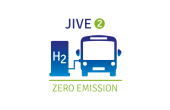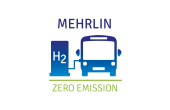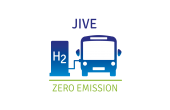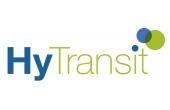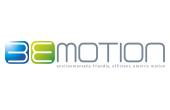The NewBusFuel (finnced by the FCH-JU) aimed to fill a major gap in the existing knowledge base around the refuelling of hydrogen at a bus depot scale.
Existing hydrogen refuelling stations (HRS) have been designed and operated with maximum fuelling capacities in the 100s of kg/day supplying up to 15 buses. For hydrogen to be a viable fuel for bus operators in the medium term, solutions are required which can provide fuel for 100’s of buses. This implies fuelling requirements of 1,500 kg/day and above. Providing fuel at this scale creates new challenges which have only been tackled theoretically by the hydrogen industry. Until now there is a considerable knowledge gap around the designs, processes and safety implications of providing hydrogen refuelling on this scale. A large pan-European consortium has assembled to develop solutions to these challenges. The consortium carried out engineering studies for 13 different large scale hydrogen fuelling station designs at 12 different sites in seven European countries.
In summary, this guidance document: • Indicates key information on the technologies that can be used in an HRS • Proposes a framework for initiating plans and implementing an HRS for a hydrogen bus fleet • Provides advice for the stakeholder dialogue process and the related definition of the HRS specifications • Helps to determine the goals, requirements and constraints imposed by the variety of stakeholders • Helps to determine basic techno-economic and environmental parameters of the required HRS • Contains suggestions for the dialogue process with suppliers and the related engineering design process • Provides guidance on issuing an official request for tenders (RFT)

